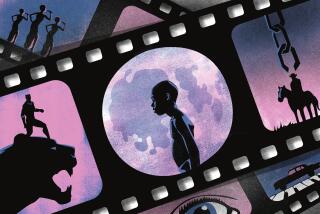Book review: âLives We Carry With Usâ by Robert Coles, edited by David D. Cooper
Lives We Carry With Us
Profiles of Moral Courage
Robert Coles, edited by David D. Cooper
The New Press: 224 pp., $24.95
âLives We Carry With Us,â in all its simplicity and clarity, is a reminder of the vast safety net that has been woven around us by the people we respect.
A psychiatrist, teacher and documentarian, Robert Coles has spent much of his life wandering, collecting stories, listening to people to understand what sustains them. He has written books, long articles and profiles about his teachers and mentors. For this book, he has chosen 13 people whose lives (words and deeds) he has carried with him.
Coles has sought a way to honestly include himself in the margins of his profiles â to let the reader know why these people are important to him. And what a precarious job that is! Too much and the piece will be more about the writer than his subject. Not enough and there can be a detached, dishonest objectivity. The people Coles most admires have tried to empathize fully with the people whose lives they enter. This is always a process whose path weaves around human fallibility and vulnerability. Coles keeps his eye on the ball as it bounces to the next right thing â the path of human potential, goodness and kindness.
In âTeachers and Mentors,â the first of four sections, Coles describes the influence that Erik H. Erikson, Anna Freud, William Carlos Williams, Walker Percy and Dorothy Day had not just on his work but also on the world. Erikson entered Colesâ life in 1961, when Coles and his wife were gathering stories of desegregation in the Georgia schools. In many ways, the developmental psychologist helped Coles form an identity as an observer and a wanderer. Freud helped Coles, then a student at Harvard, focus on child psychiatry. Williams, poet and doctor, inspired Coles to go to medical school and envision a life (like Chekhovâs) with room for both writing and medicine. Percy gave Coles the character of Binx (from the novel âThe Moviegoerâ), who has been an imaginary friend with whom Coles has debated moral questions. Day impressed Coles with her steadfastness, her early struggles and her later devotion to Jesus.
In the section âLives That Say, Sing, and Show,â Coles describes the inspiration he found in the work of James Agee, Flannery OâConnor, Dorothea Lange and Bruce Springsteen. These artists devoted their lives to the stories of the working poor. The section âLives of Moral Passionâ consists of just two philosophers, Simone Weil and Dietrich Bonhoeffer. Coles struggles with Weil â her ferocity, her glittering intellectual curiosity and her war with idolatry in all its many forms â more than with any other in this book.
Colesâ exposure to most of these peopleâs work came through academia (and, it must be said, fairly elite academia). Erikson and Freud were products of World War II; Agee, OâConnor and Lange thought a great deal about Americaâs poor. At midcentury in this country, the university served as both the European cafĂŠ â a place to exchange ideas â and a place from which to implement them. Americaâs elite Northeastern universities were places struggling to be more than factories creating more elites.
Most of these profiles are of writers who parsed the complexity of human change and identity. In the bookâs fourth section, however, âAn Old One and a Young One,â Coles writes of two lives luminous with actual grace â Una Anciana (whom Coles met in New Mexico) and Ruby Bridges (a 6-year-old girl on the forefront of desegregation in 1960s New Orleans). Both share a quiet willpower, an insistence on goodness that raises expectations in our own lives.
It is wonderful to think that we can write our own biographies by writing the lives of others. Coles was early blessed with a kind of out-of-body restlessness, with a belief in the importance of bearing witness (a dying art in the age of the blog). This restlessness has perhaps kept him from the peace enjoyed, say, by Una Anciana, but it has been a boon to the rest of us. When you carry Coles along lifeâs road, you get a suitcase full of great thinkers. Thirteen for the price of one. Even an accountant can appreciate that bargain.
Salter Reynolds is a writer in Los Angeles.
More to Read
Sign up for our Book Club newsletter
Get the latest news, events and more from the Los Angeles Times Book Club, and help us get L.A. reading and talking.
You may occasionally receive promotional content from the Los Angeles Times.








